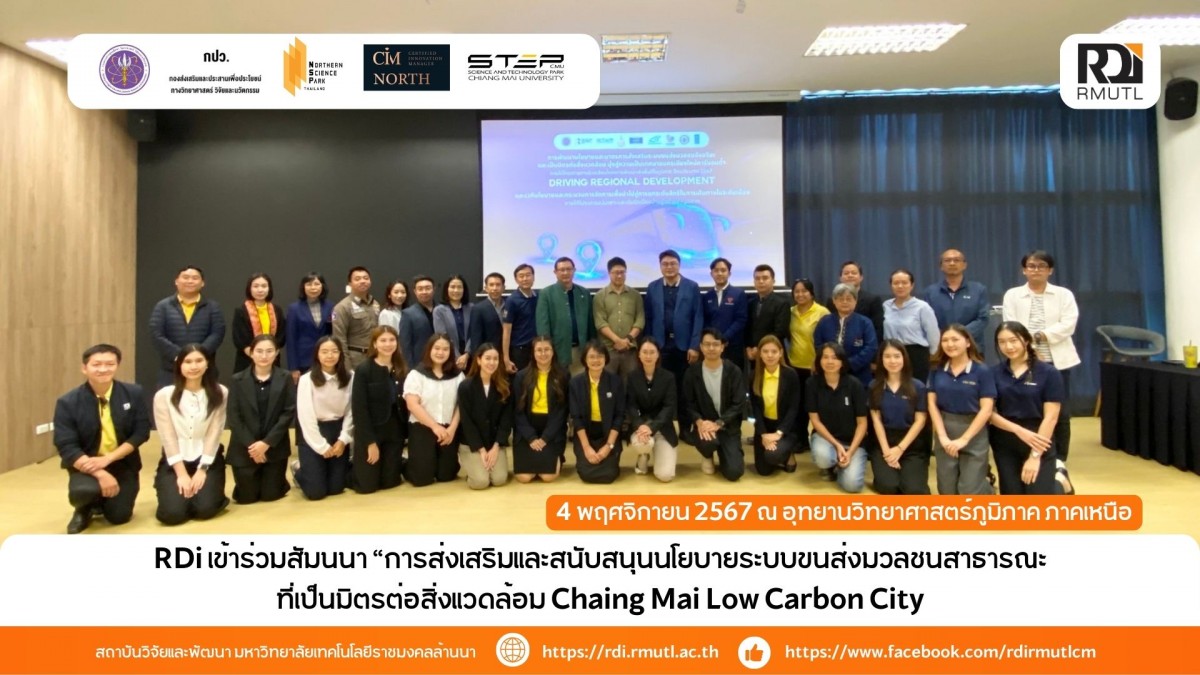On 4 November 2024, the Research & Development Institute (RDi) of Rajamangala University of Technology Lanna (RMUTL) co-hosted a high-level workshop and stakeholder forum titled “Promoting and Supporting Policy for Environmentally Friendly Public Transport Systems (Chiang Mai Low Carbon City)”. The event, held under the “Driving Regional Development” initiative, brought together leaders from provincial government, academia, industry, and civil society to co-develop policy frameworks and deliverables aimed at accelerating a low-carbon transport future for Chiang Mai.
The workshop was officially opened by the Deputy Governor of Chiang Mai Province, Mr Tosaphon Phuenudom, and RMUTL’s RDi Director, Associate Professor Dr. Nop Porn Phatra-Prakit, introduced the multi-stakeholder seminar. The agenda included:
-
A keynote presentation on the conceptual foundations of public-transport low-carbon policy by Associate Professor Dr. Poon Tiangburunthanam (Deputy Director – Strategy & Planning, AREA Fund)
-
A second feature presentation by RMUTL-RDi on the proposed policy and measures for a “Smart, Environmentally-Friendly Public Transport System” geared toward the vision of a Low-Carbon Chiang Mai Municipality.
-
Break-out sessions where government agencies, academic units, private-sector firms and civil-society groups jointly exchanged ideas and presented strategies for advancing public transport policy, deploying clean-energy technologies, and reducing greenhouse-gas emissions through urban mobility interventions.
By convening this forum, RMUTL has provided direct policy-support services to regional stakeholders: the event produced policy briefs, action-roadmap inputs, and consensus-based measures for municipal authorities and regional transport agencies. The outcome strengthens the institutional link between academia, research, and government policy-making for clean energy and energy-efficient systems, particularly in mobility and public transport infrastructures.
This initiative is directly aligned with SDG 7 (“Affordable and Clean Energy”) and specifically the indicator 7.4.4, as it demonstrates RMUTL’s role in informing and supporting government policy development in clean energy technologies and efficient systems.
Key Points:
- RMUTL’s RDi acted as convener and knowledge-hub, bridging research and public-policy formulation.
- Focus was on public-transport systems as a key domain for clean-energy technology deployment and GHG reduction in urban settings.
- The multi-stakeholder format ensured that government, industry, academia and civil society jointly generated policy options and road-maps.
- The workshop feeds directly into regional and municipal planning for a low-carbon future, illustrating RMUTL’s role beyond campus to regional policy influence.

